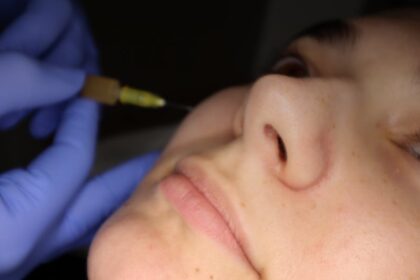1. Acknowledge the problem and gather your facts
The first key step is recognising that gaming use may have crossed the line into addiction. Signs can include long hours of play, neglecting personal or work responsibilities, irritability when unable to play, social isolation, declining physical health, or damage to relationships. For example, one article notes that gaming addiction may lead to reduced academic or professional performance, social isolation and physical issues.
Once you’ve recognised the possibility, gather more info:
- Note how many hours are being spent gaming.
- Observe patterns of behaviour (e.g., skipping meals, avoiding friends/relatives, playing instead of resting).
- Write down how it’s affecting your life (sleep, mood, work/school, relationships).
- Accept that behavioural addictions (like gaming) are real and valid for treatment.
This step sets the foundation for seeking help.
2. Understand what “treatment for gaming addiction” means
Not all treatment is the same. Here are key elements to look for in a good program:
- Specialised focus on behavioural addictions (not just substance addictions). For instance, one Mumbai-based centre mentions that they treat gaming, internet use and mobile-addiction under behavioural disorders.
- Therapeutic techniques: cognitive behavioural therapy (CBT), counselling, family therapy, relapse prevention, psycho-education.
- Holistic supports: nutrition, exercise/physical health, mindfulness, lifestyle re-balancing. Example: a centre in Thane/Mumbai emphasises balanced nutrition and physical activity alongside therapy.
- After-care and relapse prevention: recovery is not just one session—it often involves ongoing support.
By understanding what effective treatment includes, you’ll be better equipped to evaluate options.
3. Research local treatment options in and around Mumbai
Here are key things to look for and where to find them:
- Use directories like Justdial for “Internet de-addiction centres”, “gaming addiction treatment”. For example, a search of centres in Mumbai found internet de-addiction listings with experience in behavioural addictions.
- Identify specialised centres that explicitly mention gaming/internet/behavioural addiction. For example: TruCare Trust near Thane/Mumbai offers gaming‐addiction-specific rehab.
- Look at rehabilitation centres such as New Life Care Foundation in Mumbai that list behavioural addiction (including gaming) among their services.
- Check the credentials: Are they licensed? What therapies are offered? Is there residential or outpatient support?
- Consider proximity (how easy it is to reach), cost, amenities, and whether you feel comfortable/accepted.
Taking notes on a few prospective centres helps you compare. Create a shortlist of perhaps two-three places.
4. Reach out, ask questions and evaluate fit
Once you’ve found a few options, make contact. Here are useful questions to ask:
- “Do you treat gaming addiction specifically (not just substance addiction)?”
- “What is the typical treatment plan for a gaming‐addiction case?”
- “Is the environment residential or outpatient? How many hours per day/week?”
- “What therapeutic methods do you use (CBT, family therapy, group sessions)?”
- “What are the costs, payment plans, insurance coverage?”
- “What happens after the main programme (follow-up, after-care)?”
- “Is the approach non-judgemental and confidential?”
Evaluate the centre based on how answers resonate with you: Do you feel heard? Do they seem empathetic? Is the facility accessible? Note down your impression of the staff, facilities, and what recovery looks like from their side.
5. Choose the right type of programme for your needs
Depending on severity, you might choose among:
- Outpatient counselling/therapy: If the gaming behaviour is moderate, you can attend sessions while continuing your day-to-day life.
- Residential programme: A more intensive stay in a rehab/therapy centre, helpful if gaming addiction is severe and has led to major disruption. For instance, the New Life Care Foundation offers a residential programme.
- Hybrid model: Some centres might offer an initial residential stay, then transition to outpatient follow-ups.
- Online or group support: While local centre is ideal, supplemental online group sessions are good for ongoing maintenance — e.g., SoulUp offers online groups for gaming-dependence.
Your choice depends on your schedule, budget, severity of addiction, and personal preference. Be realistic: serious addiction often requires a more structured environment.
6. Prepare for admission & commit to the process
Once you select a centre and type of programme:
- Complete admission paperwork, assessment sessions, any required medical checks.
- Inform your close family/friends so you have support: recovery works best when you’re not isolated.
- Prepare to adjust your lifestyle during and after treatment: gaming will reduce, other activities will increase.
- Set realistic expectations: Progress takes time. Relapse can happen, but that doesn’t mean failure—it means you adjust your plan.
- Arrange for leave from work or school, if needed, especially for residential treatment.
- Ensure you plan for finances and logistics (travel, stay, belongings, contacts).
- For family involvement: Many programmes include family therapy because addiction affects not just the individual but their close circle.
7. After-care and sustainable recovery
Finishing the core programme is a milestone—but recovery continues. Good after-care includes:
- Regular follow-up therapy/counselling: To deal with triggers, stress, or relapse risk.
- Support groups or peer networks: People who understand your journey can help you stay accountable.
- Lifestyle changes: Balanced daily routine, physical activity, healthy sleep, nutrition (as emphasised by some centres).
- Digital boundaries: Set limits on gaming time, screen time, and build other hobbies/interests. For example, one tip: find something else to occupy your time instead of gaming.
- Family involvement: Having your family or close friends aware of your recovery journey helps.
- Mindset shift: Recovery often requires recognising deeper issues (boredom, social anxiety, escape) and working on those, not just quitting gaming.
- Relapse plan: Know what you’ll do if you feel you’re slipping (who you’ll call, what activities you’ll do instead, which therapist you’ll contact).
8. Tips to make the most of your treatment journey
- Be honest: The more open you are about your gaming habits and underlying feelings, the more effectively the therapist can help.
- Stay consistent: Therapy, sessions, activities—don’t skip.
- Use downtime wisely: Instead of jumping back into excessive gaming, explore new hobbies, sports, reading, volunteering.
- Be patient: Recovery is rarely linear. There may be setbacks, but each day you choose to stay in the process, you move forward.
- Build your support system: whether friends, family, or fellow-recovering individuals, you’re stronger with people around you.
- Celebrate small wins: less gaming time, more social time, better sleep, improved mood—these matter.
- Keep yourself engaged: Many gaming addicts say they used games as escape—finding meaningful ways to engage with the world helps reduce the pull of gaming. One Reddit user said:
“I start by doing this every month. then after a few days, the habit fizzles out, goes dry.”
Final word
If you’re ready to seek help for Gaming Addiction Treatment in Mumbai, you’re not alone—and you can make a change. By following these steps—acknowledging the problem, understanding treatment, researching centres, choosing the right programme, committing to the process, and engaging in after-care—you greatly increase your chances of recovery and finding a healthier balance in life.


